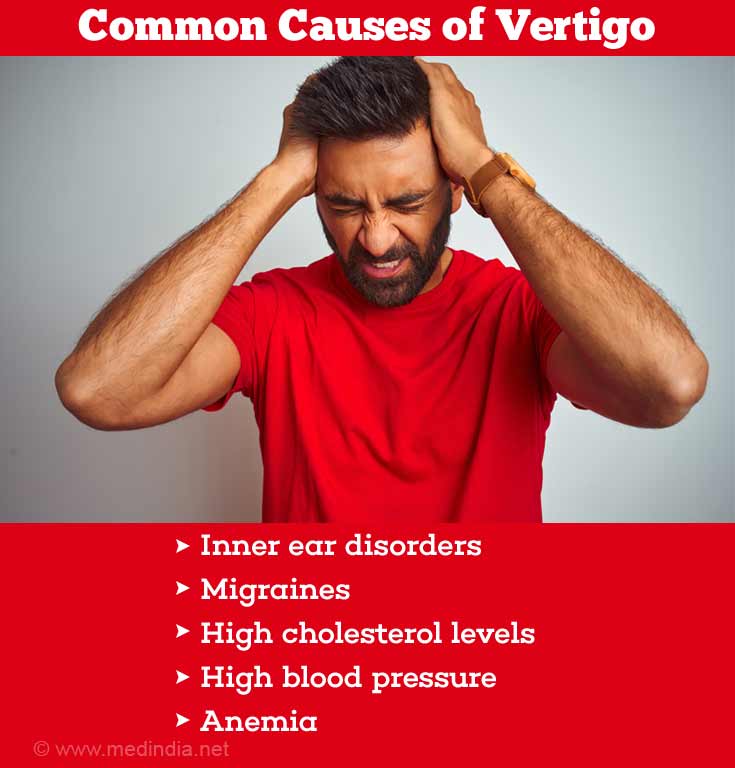- Olivier, S. "The Essential Guide to Foods that Heal", 2012.
- Madan, J. "Food For Your Head", Wellbeing, July-August 2008.
About
Vertigo is a type of dizziness. It is more of a symptom rather than a condition. Although dizziness and vertigo are often confused, they are not the same thing. While vertigo is all about dizziness, a feeling of nausea and dizziness is not always vertigo.
True vertigo is distinct and often it is a severe form of dizziness, i.e., a movement hallucination. The feeling may be slight and barely noticeable, or it may be so severe that one finds it difficult to keep balance and do everyday tasks.
Most patients with true vertigo have a peripheral vestibular disorder usually associated with tinnitus and hearing loss. One may vomit or have ringing in the ears (tinnitus). Vertigo is the illusion about the surroundings moving. Also, the eyes may uncontrollably jerk back and forth (a condition called nystagmus).
Causes and Symptoms of Vertigo
Vertigo is most commonly caused by a problem with the balance mechanisms in the inner ear. It can also be caused by problems in certain parts of the brain.
Common causes of vertigo are benign positional paroxysmal vertigo (BPPV), meniere's disease (a condition that affects the inner ear), vestibular neuronitis (inflammation of the vestibular nerve which runs into the inner ear and sends messages to the brain that helps control balance), high cholesterol. hypertension and anemia.

Changing the Diet to Ease Vertigo Symptoms
Certain modifications in the diet can help people with Ménière's disease, secondary endolymphatic hydrops and migraine associated vertigo (MAV) manage their disorder. Try out some of these diet strategies that will help regulate fluid imbalances and reduce vertigo symptoms:
- Evenly distribute food and fluid intake throughout the day
- Avoid foods and beverages with high sugar or salt content
- Drink enough fluids everyday and drink extra fluids to compensate fluid loss from exercise or heat

- Avoid caffeine rich foods and beverages, as caffeine’s diuretic properties can trigger excessive loss of bodily fluids
- Limit or totally avoid alcohol consumption because alcohol can have a harmful effect on the inner ear, damaging the volume and composition of its fluid
- Avoid migraine triggers such as foods that contain the amino acid tyramine-red wine, yogurt, smoked meats, chicken liver, bananas, chocolates and citrus fruits








